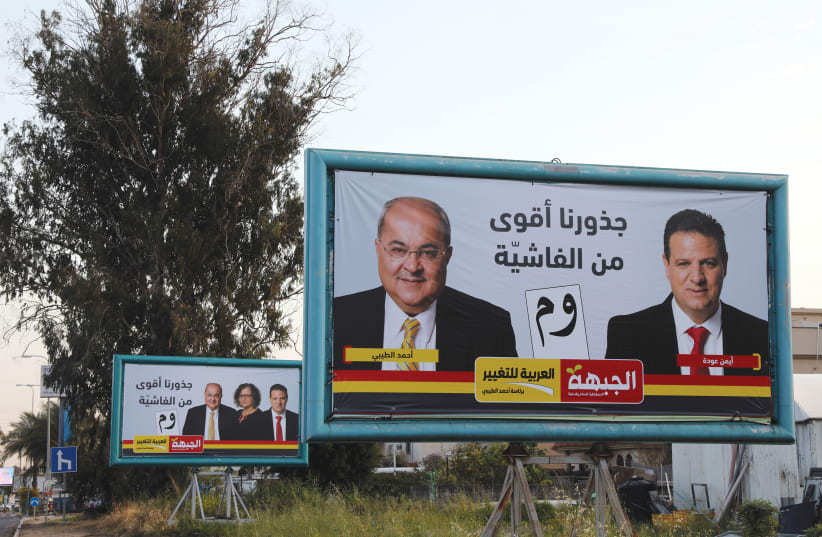The report details ways in which the right to freedom of expression of Israeli Arabic members of the Knesset (MKs) has been threatened by discriminatory legislative changes, proposed bills and Knesset regulations. It also highlights alleginflammatory rhetoric used by Israeli government ministers to stigmatize Israeli Arabic MKs and exposes how bills put forward by Israeli Arabic MKs have been unfairly disqualified on discriminatory grounds.
“Israeli Arabic members of the Knesset in Israel are increasingly facing discriminatory attacks. Despite being democratically elected like their Jewish Israeli counterparts, Israeli Arabic MKs are the target of deep-rooted discrimination and undue restrictions that hamstring their ability to speak out in defence of the rights of the Israeli Arabic people,” said Saleh Higazi, Deputy Middle East and North Africa Director at Amnesty International.
The report claims that "With Israel systematically committing human rights violations against Israeli Arabs in Israel and the Occupied Palestinian Territories, it is vital that Israeli Arabic voices in parliament are heard, considered and respected.”
Israeli Arabs make up 20% of Israel’s population and although their rights to political participation and representation are recognized by Israeli and international law, in practice they can often face widespread discrimination, including in terms of citizenship, housing, education and health care.
Israel’s controversial “nation state law” (formally known as Basic Law: Israel - The Nation State of the Jewish People), which passed in 2018, defines Israel as the nation state of the Jewish people. Although the bill does not explicitly state it, some have argued that it constitutionally entrenches inequality and discrimination against non-Jews.
The hotly contested law grants the right to self-determination exclusively to Jews, establishes that immigration leading to automatic citizenship is exclusive to Jews, promotes the building of Jewish settlements and downgrades the status of Arabic from an official language. While the law itself doesn't currently have any applicable clauses, it can potentially open the door for very problematic future legislation.
Discrimination in the Knesset
Amnesty International identified a series of legislative amendments, regulations and practices in the Knesset that they claim facilitate discrimination against Israeli Arabic MKs.
For example, a 2016 legislative amendment that allows members of the Knesset to expel elected MKs by a majority vote means that MKs who express controversial political views or opinions that are deemed unacceptable by a majority of MKs can face expulsion from parliament.
One Israeli Arabic MK described this amendment as a “sword dangled over our heads by members of the Knesset who oppose us politically”, implying that it was intended to intimidate Israeli Arabic MKs into silence.
The briefing also highlights discriminatory attitudes and divisive rhetoric employed by Israeli politicians towards their Israeli Arabic counterparts. Prime Minister Benjamin Netanyahu has openly said that “Israel is not a state of all its citizens... It is the nation-state of the Jewish people only," and claimed that Israeli Arabic political parties are attempting to eradicate the State of Israel.
Israeli Arabic MKs who openly criticize Israeli policies have been labelled as “traitors” and faced calls for them to be “outlawed” or tried for “treason”.
Amnesty International’s briefing also reveals that, since 2011, at least four bills related to Israeli Arabs’ rights, including their right to participate in public life, have been disqualified before even reaching discussion in parliament.
“The Israeli Knesset must urgently repeal or amend all legislation that facilitates discrimination against Israeli Arabic MKs and other Israeli Arabic citizens of Israel, starting with the ‘nation state law’,” said Saleh Higazi.
“Israeli authorities must end the discriminatory restrictions against Israeli Arabic MKs and ensure their right to freedom of expression is upheld," he continued. "They must also stop using inflammatory rhetoric which ostracizes elected representatives advocating for human rights and equality and stirs hostility towards Israeli Arabic s more generally.”
